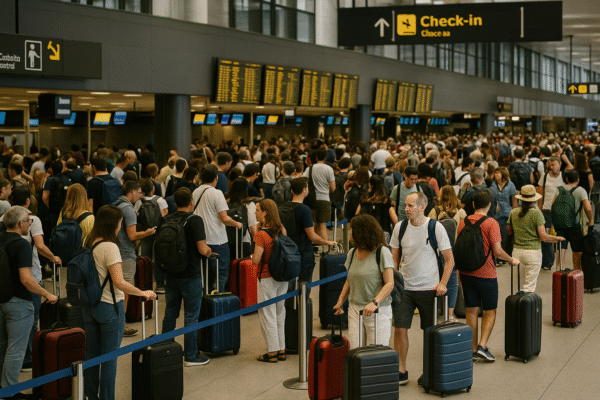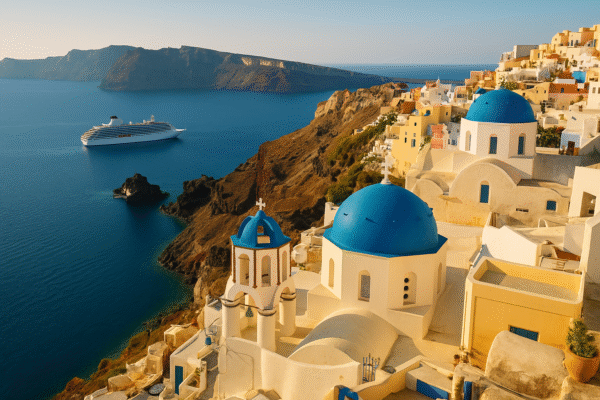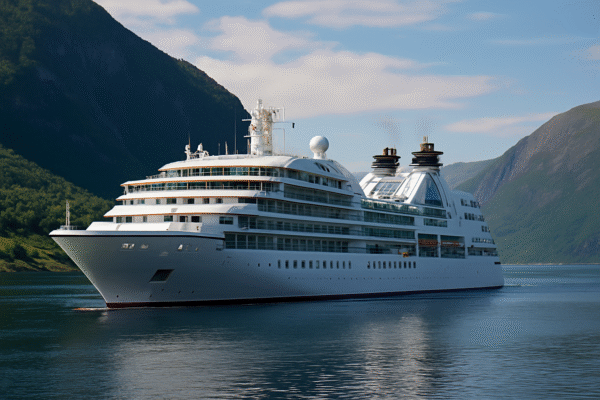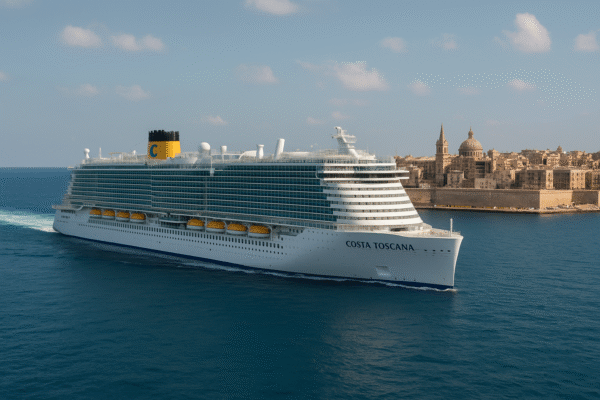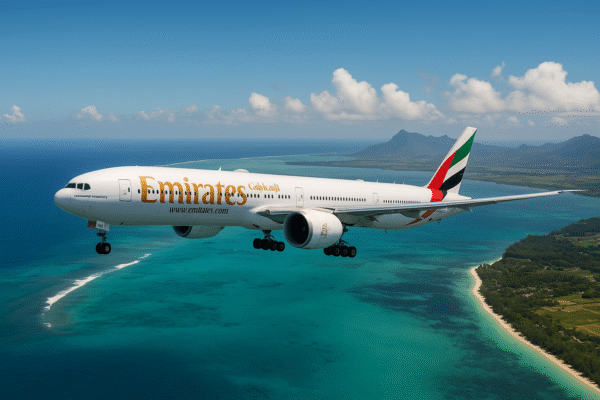Greece Unveils ‘All Aboard Greece’ Campaign to Boost Cruise Tourism Sustainability and Economic Impact
ATHENS, Greece – In a major effort to balance economic growth with sustainable tourism, Greece has launched the ‘All Aboard Greece’ campaign, an initiative by the Cruise Lines International Association (CLIA) to promote the critical role of cruise tourism in the country’s future. The campaign aims to emphasize the transformative power of cruise travel on local economies while advocating for long-term environmental and community-focused strategies.
Announced this July, ‘All Aboard Greece’ features a compelling series of videos and messaging that unites voices from across the industry, including government officials, port authorities, tourism experts, local suppliers, and academic leaders. The central theme? Cruise tourism is not only a powerful economic engine for Greece but also a sector that must embrace sustainability, collaboration, and innovation.
A Vital Contributor to Greece’s Tourism Economy
According to CLIA Europe, the cruise industry supported over €1 billion in direct expenditures and more than 15,000 jobs in Greece in 2023. With marquee destinations like Santorini, Mykonos, Piraeus, and Rhodes frequently featured on global itineraries, cruise tourism is a driving force for local businesses—from tour operators and cultural sites to artisans and hospitality providers.
The campaign’s message is rooted in hard data: each cruise ship arrival brings thousands of visitors who spend on local goods, excursions, restaurants, and transportation. The cumulative economic boost is particularly critical for island economies, many of which rely heavily on tourism.
A Collaborative Vision for Long-Term Success
Maria Deligianni, National Director for CLIA in Eastern Mediterranean, emphasized the importance of an “inclusive strategy that respects both the needs of local communities and the global shift toward sustainable travel.” By featuring local voices in the campaign’s next two upcoming videos—“Local Voices” and “Sustainable Cruising”—CLIA aims to spotlight the human impact of tourism and show how Greek communities are adapting to new challenges.
The initiative stresses that sustainable development must be community-led. Whether through stakeholder meetings, environmental impact studies, or education programs, Greece’s cruise tourism model increasingly aims to balance profitability with preservation.
Sustainable Cruising: Greener Ships, Cleaner Seas
Greece is also aligning itself with CLIA’s global sustainability goals, which include a net-zero carbon cruising target by 2050. Many cruise lines operating in Greek waters are adopting liquefied natural gas (LNG) propulsion, shore power connectivity, and advanced waste management systems.
According to Greece’s Ministry of Shipping and Island Policy, Piraeus Port has already begun investing in green infrastructure, including electrified docking stations and water quality monitoring. These changes support not just the cruise lines, but also help reduce the environmental strain on port cities.
The Sustainable Cruising video, set to launch later this year, will highlight such efforts, offering a behind-the-scenes look at how cruise companies are modernizing fleets and operations in response to growing environmental concerns.
Cruise Passenger Levy: A New Era of Responsible Tourism
Coinciding with the campaign, Greece introduced a cruise passenger disembarkation levy effective July 21, 2025, as part of a broader initiative to tackle over-tourism and improve infrastructure.
The levy ranges from €1 to €5 per passenger, depending on the port and season, with higher rates applied to overburdened destinations such as Mykonos and Santorini. These islands—among Europe’s most photographed locales—have seen unsustainable tourist flows in peak seasons, prompting urgent calls for visitor management strategies.
The Hellenic Ministry of Tourism confirmed that revenues from the levy will be reinvested into:
- Port upgrades
- Waste and water systems
- Cultural heritage preservation
- Transportation network improvements
This marks a pivotal shift from mass tourism to value-driven tourism, where the emphasis is on quality visitor experiences rather than sheer volume.
Local Engagement and Community Voices
A highlight of the campaign is its focus on local community engagement. The upcoming “Local Voices” video will feature interviews with residents, business owners, and cultural stewards from cruise hotspots like Nafplio, Corfu, and Heraklion. These testimonies will explore both the positive impacts and the pressures of cruise traffic on their way of life.
Initiatives like controlled docking schedules, community-based tourism programs, and visitor dispersal strategies are already in motion to ensure that benefits from tourism are shared equitably and sustainably.
A Blueprint for Cruise Tourism Globally
As cruise tourism rebounds post-pandemic, the Greek model may offer valuable insights for other Mediterranean and global destinations grappling with similar challenges. The ‘All Aboard Greece’ campaign signals a shift from passive tourism to a proactive, stakeholder-centered model that protects both economic and ecological interests.
By uniting public and private sectors, Greece positions itself as a leader in responsible cruise tourism, showing that growth and sustainability can go hand in hand.
Conclusion
With the ‘All Aboard Greece’ campaign and the newly implemented cruise passenger levy, Greece is not only securing its position as a top global cruise destination but also setting a precedent for responsible tourism. Through innovation, community collaboration, and transparent policy, the nation is building a future where both its economy and environment thrive together.
For more travel news like this, keep reading Global Travel Wire












